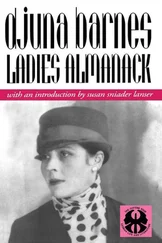‘Yes,’ she said, ‘she met every one.’
‘Well,’ he went on, ‘The house was beginning to empty, all the common clay was pouring down the steps talking of the Diva (there’s something wrong with any art that makes a woman all bust!) and how she had taken her high L, and all the people looking out of the corner of their eyes to see how their neighbours were dressed, and some of them dropping their cloaks rather low to see the beast in a man snarling up in his neck—and they never guessed that it was me, with both shoulders under cover, that brought the veins to their escorts’ temples—and walking high and stately—the pit of my stomach gone black in the darkness that was eating it away for thinking of you, and Robin smiling sideways like a cat with canary feathers to account for, and Jenny tripping beside her so fast that she would get ahead and have to run back with small cries of ambition, saying wistfully, “You must come to my house for late supper."
‘God help me, I went! For who will not betray a friend, or, for that matter, himself, for a whisky and soda, caviare and a warm fire—and that brings me to the ride that we took later. As Don Antonio said long ago, “Did’st thou make a night of it?” And was answered (by Claudio), “Yes. Egad! And morning too; for about eight o’clock the next day, slap! They all soused upon their knees, kissed around, burned their commodes, drank my health, broke their glasses and so parted.” So Cibber put it, and I put it in Taylor’s words: “Did not Periander think fit to lie with his wife Melissa after she had already gone hent to heaven?” Is this not night work of another order also, but night work still? And in another place, as Montaigne says: “Seems it not to be a lunatic humour of the moon that Endymion was by the lady moon lulled to sleep for many months together that she might have her joy of him who stirred not at all except in sleep."
‘Well, having picked up a child in transit, a niece of someone Jenny knew, we all went riding down the Champs Elysées. We went straight as a die over the Pont Neuf, and whirled around into the rue du Cherche-Midi, God forgive us! Where you, weak vessel of love, were lying awake and wondering where, and all the time Jenny doing the deed that was as bad and out of place as that done by Catherine of Russia, and don’t deny it, who took old Poniatovsky’s throne for a water closet. And suddenly I was glad I was simple and didn’t want a thing in the world but what could be had for five francs. And I envied Jenny nothing she had in her house, though I admit I had been sort of casting my eye over a couple of books, which I would have spirited away if they hadn’t been bound in calf—for I might steal the mind of Petronius, as well I knew, but never the skin of a calf—for the rest, the place was as full of the wrong thing as you would care to spend your inheritance on—well, I furnished my closet with phenomenal luck at the fair, what with shooting a row of chamber pots and whirling a dozen wheels to the good, and every one about me getting nothing for a thousand francs but a couple of velvet dogs, or dolls that looked as if they had been up all night. And what did I walk home with for less than five francs? A fine frying pan that could coddle six eggs, and a raft of minor objects that one needs in the kitchen—so I looked at Jenny’s possessions with scorn in my eye. It may have been all most “unusual", but who wants a toe-nail that is thicker than common? And that thought came to me out of the contemplation of the mad strip of the inappropriate that runs through creation, like my girl friend who married some sort of Adriatic bird who had such thick ones that he had to trim them with a horse file—my mind is so rich that it is always wandering! Now I am back to the time when that groom walked into my life wearing a priest’s collar that he had no more right to than I have to a crupper. Well, then the carriages came up with their sweet wilted horses, and Robin went down the steps first, and Jenny tearing after her saying, “Wait! Wait!” as if she were talking to an express on its way into Boston, and dragging her shawl and running, and we all got in—she’d collected some guests who were waiting for her in the house.’
The doctor was embarrassed by Nora’s rigid silence; he went on. ‘I was leaning forward on my cane as we went down under the trees, holding it with both hands, and the black wagon I was in was being followed by a black wagon, and that by another, and the wheels were turning, and I began saying to myself: The trees are better, and grass is better, and animals are all right and the birds in the air are fine. And everything we do is decent when the mind begins to forget—the design of life; and good when we are forgotten—the design of death. I began to mourn for my spirit, and the spirits of all people who cast a shadow a long way beyond what they are; and for the beasts that walk out of the darkness alone, I began to wail for all the little beasts in their mothers, who would have to step down and begin going decent in the one fur that would last them their time. And I said to myself: For these I would go bang on my knees, but not for her—I wouldn’t piss on her if she were on fire! I said, Jenny is so greedy that she wouldn’t give her shit to the crows. And then I thought: Oh, the poor bitch, if she were dying, face down in a long pair of black gloves, would I forgive her? And I knew I would forgive her, or anyone making a picture. And then I began looking at the people in that carriage, very carefully raising my eyes so they would not notice anything unusual, and I saw the English girl sitting up there pleased and frightened.
‘And then at the child—there was terror in it and it was running away from something grown up; I saw that she was sitting still and she was running, it was in her eyes, and in her chin, drawn down, and her eyes wide open. And then I saw Jenny sitting there shaking, and I said: God, you are no picture! And then, Robin was going forward, and the blood running red, where Jenny had scratched her, and I screamed and thought: “Nora will leave that girl some day: but though these two are buried at opposite ends of the earth, one dog will find them both."’
CHAPTER SIX
Where the Tree Falls
Baron Felix, who had given up his place in the bank, though not his connections with it, had been seen in many countries standing before that country’s palace gate, holding his gloved hands before him in the first unconcluded motion of submission; contemplating relics and parts, with a tension in his leg that took the step forward or back a little quicker than his fellow sightseer.
As at one time he had written to the press about this noble or that (and had never seen it in print), as he had sent letters to declining houses and never received an answer, he was now amassing a set of religious speculations that he eventually intended sending to the Pope. The reason for this was, that as time passed it became increasingly evident that his child, if born to anything, had been born to holy decay. Mentally deficient, and emotionally excessive, an addict to death; at ten, barely as tall as a child of six, wearing spectacles, stumbling when he tried to run, with cold hands and anxious face, he followed his father, trembling with an excitement that was a precocious ecstasy. Holding his father’s hand he climbed palace and church steps with the tearing swing of the leg necessitated by a measure that had not taken a child into account; staring at paintings and wax reproductions of saints, watching the priests with the quickening of the breath of those in whom concentration must take the place of participation, as in the scar of a wounded animal will be seen the shudder of its recovery.
Читать дальше












